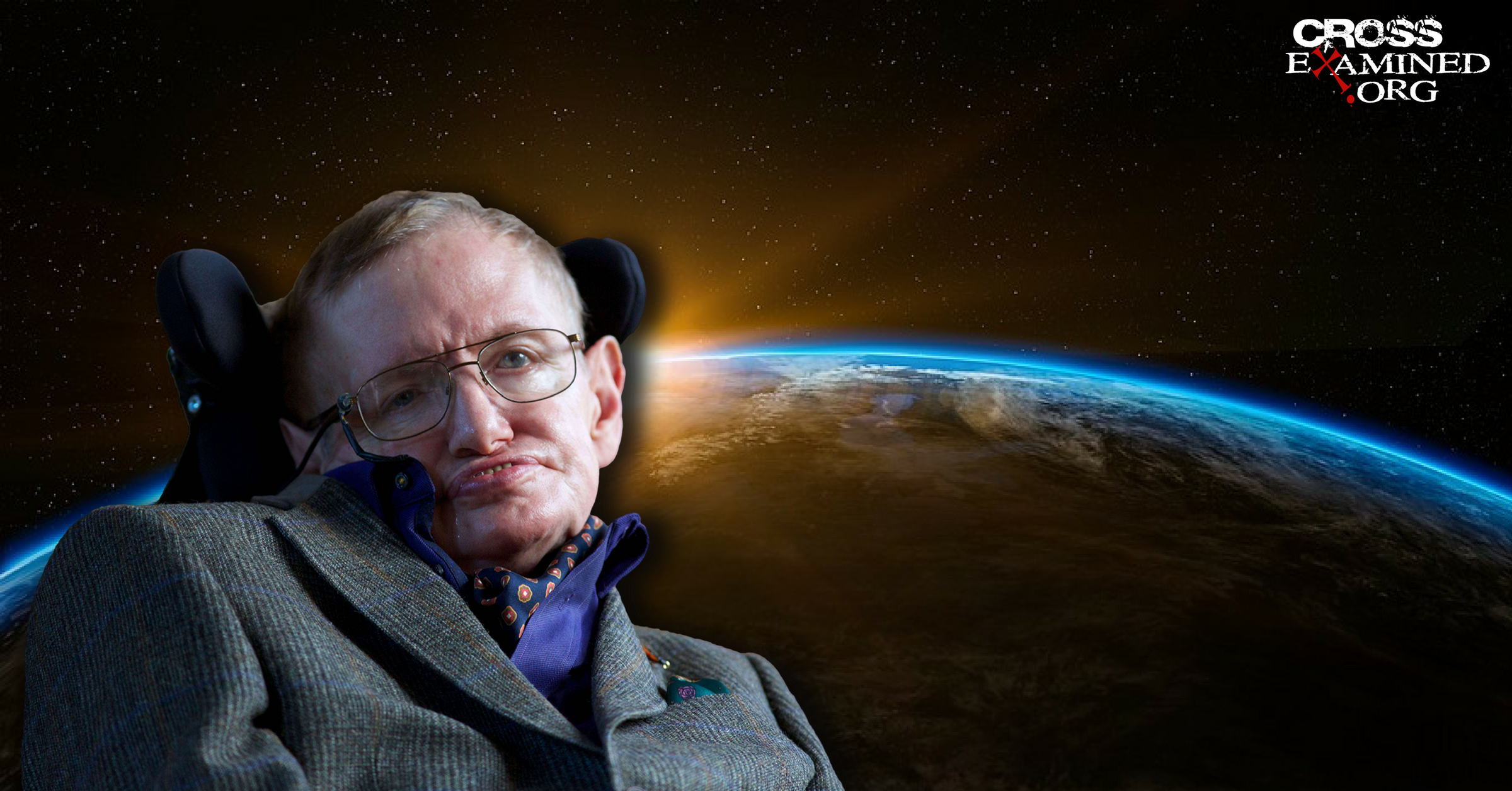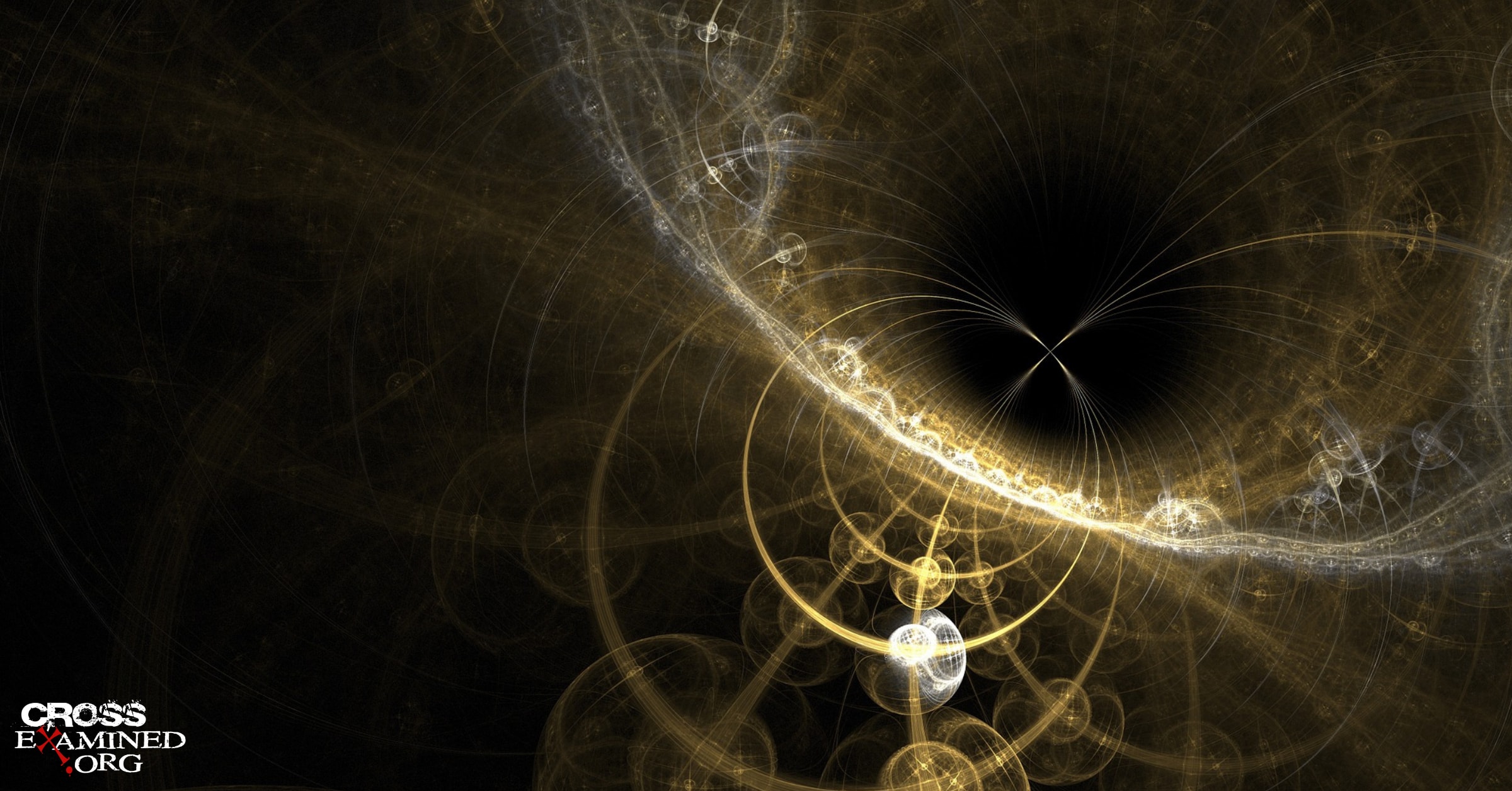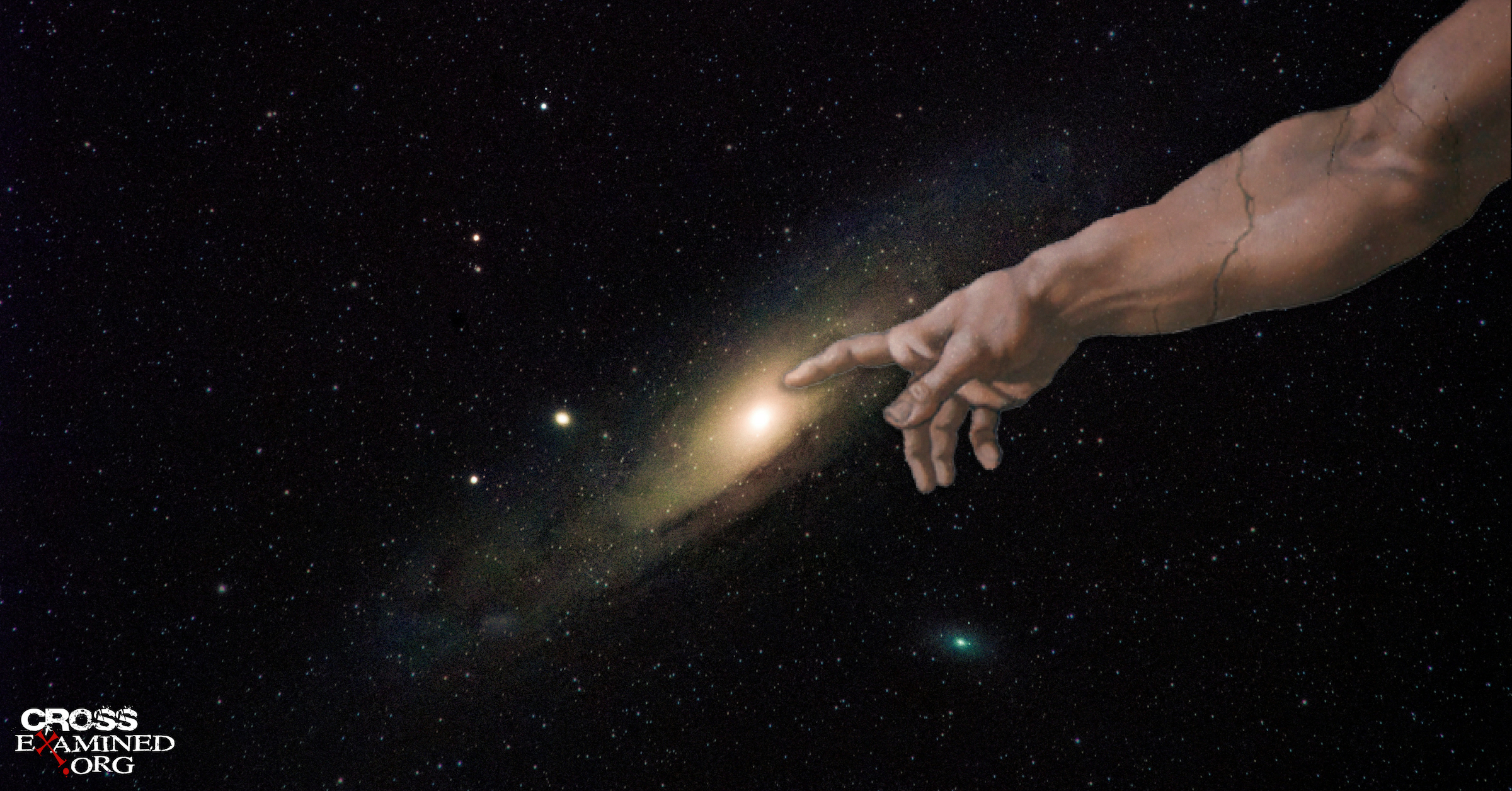How The Multiverse Theory Could Challenge Your Child’s Faith
What comes to mind when you hear the word “multiverse”? Do you (a) cringe, (b) hink of your kid’s favorite Marvel movie, or (c) do you cock your head like a confused (but very cute) puppy? In case you chose “c,” the term “multiverse” refers to a theory that we live in one of many (potentially even an infinite number) of universes. It makes for MARVELous movies (see what I did there?). But what happens when this theory makes its way into the minds of our kiddos as a plausible explanation of reality? Can this affect their view of God?
How a “Multiverse” Replaces God
The mainstream scientific consensus is that the universe as we know it had an ultimate beginning at “The Big Bang.” This is a massive problem for someone wishing to maintain a naturalistic worldview (a worldview in which no God exists). Why? Because in nature, things don’t pop into existence out of nothing! Especially things that just happen to lead to unimaginably complex systems that produce life, irreducibly complex systems, and also advanced, rational, sentient beings. But even if one accepts mainstream science, the naturalist still has another card to play. What if our universe were just one of an infinite number of universes? What if there were some kind of natural, eternal universe-generating system, and we just happen to live in a lucky universe in which a planet that is ideal for hosting advanced human life exists? If it’s true, then belief in a creator is unnecessary because everything in existence has a natural explanation. Anything “super”-natural can be ruled out.
The multiverse theory is becoming more popularized, and it’s being introduced to us and our kiddos through entertainment like movies (for example: Spider-Man: Into the Spider-Verse) and even a spiritually dangerous social media trend called “reality shifting.”[1]
And, I’m not gonna lie, it’s fun to think about! It is the perfect setup for a fictional fantasy world. But it’s also an excellent opportunity to have conversations with our kids and teach them some good ol’ critical thinking.
Why The Multiverse Theory is Unreasonable: The Kalam Cosmological Argument
In a previous blog post, [I] introduced “Classical Apologetics,” as a branch of apologetics in which we argue for the existence of God, but not specifically for the Christian God (those arguments come later). The Kalam cosmological argument (sounds confusing, I know, but stick with me) is a classical apologetic argument that, if true, rules out the possibility of a multiverse that emerges from pure naturalism (a God-less reality). It argues that God is necessary to explain the reality of our universe.
The argument is simple enough to teach to even young kids. It goes like this:
- Whatever begins to exist has a cause.
- The universe began to exist.
- Therefore, the universe has a cause.
If, after examination, this line of argumentation is determined to be sound, then the next step is to ask some questions about this “cause.” How do we get from a “cause” to God? Couldn’t the “cause” be an effect of another cause, which is an effect of ANOTHER cause forever and ever? Hold your horses, we’ll get there! We need to take a closer look at the first two premises.[2]
How do we get from a “cause” to God? Couldn’t the “cause” be an effect of another cause, which is an effect of ANOTHER cause forever and ever? #Kalam #apologeticsShare on X
FIRST PREMISE: Whatever begins to exist has a cause.
For every effect, there must be a cause. If I find a $5 bill on the ground of a parking lot, it would be silly for me to assume that it accidentally assembled itself from the elements. I can reasonably infer that somebody dropped it. Why? Because nothing happens for no reason. This is the basis of science. We have to assume that whatever we are studying has a reason or cause for its properties in order to search for the reason or cause!
SECOND PREMISE: The universe began to exist.
This premise relies on reason alone (as opposed to hard evidence), but can be supported with current scientific evidence.[3] If the universe may have existed eternally in the past, then this premise, and therefore the entire argument, fails. Likewise, if a multiverse-generating system can exist, then the argument fails. So, the goal is to show that it is logically impossible for the universe (or whatever system caused the universe) to be eternal. Whatever is not eternal has a beginning.
Now, let’s defend this premise. We’re going to get into the concept of infinity. You might want to grab a cup of coffee or a Bubbl’r . . .
If the universe does not have a beginning, then there would have been an infinite number of moments before this moment right now (called an infinite regress). But can there be an infinite number of past moments? Well, if so, it is difficult to see how we could ever arrive at this moment today since it would take an infinite number (an unending number) of moments to get here! Philosopher and professor Douglas Groothuis likens it to attempting to jump out of a bottomless pit.[4] An infinite past seems to be a logical absurdity.
That wasn’t too bad, was it? Keep sipping that coffee or energy drink because we need to dive a little deeper into infinity as we consider our conclusion.
CONCLUSION: Therefore, the universe has a cause.
Thus far, we’ve established that anything that begins has a cause. We’ve also reasoned that the universe must have a beginning. At this point, we can conclude that the universe, therefore, has a cause.
Well, isn’t it a ginormous leap to immediately assume that this cause is God?! What if the multiverse theory is true? What if the cause of our universe is some kind of eternal multiverse-generating system? Here’s the problem: Even the multiverse theory would depend on an infinite number of past events. Remember that nothing happens for no reason. Every effect has a cause. So, there would need to be a cause for our particular universe to have emerged within that system. And that cause would need to have a cause, and so on. Anything that requires an infinite regress is arguably a logical absurdity that we can reasonably rule out, including a multiverse.
Further, the existence of an infinite number of universes also seems to lead to logical absurdities. Philosophers who defend the Kalam cosmological argument, like William Lane Craig, maintain that an actual infinite number of anything is impossible. Imagine an infinite number of Hot Wheels cars. Take away 100 Hot Wheels. How many do you have left? You still have the same number – infinity! Infinity minus 100 is still infinity. So, would it be possible for an infinite number of universes to exist? Some say “no way, Jose,” because it would lead to mathematical absurdities.
Got a little extra brain power? Check out this mind-bending video describing Hilbert’s paradox of the Grand Hotel, a classic example of how an actual infinite leads to absurdities.

Image from https://steemit.com/steemstem/@mcfarhat/hilbert-s-grand-hotel-paradox.
What (or Who) is this “Cause”?
So far, we have made a case that our universe needs to have an ultimate cause. And based on our discussions about the infinite, I think it is reasonable to assume that this cause cannot lead us to an “infinite regress” (an effect by a cause, which is itself an effect of another cause, on and on into the infinite past). In other words, the cause we are searching for cannot itself be caused. We are talking about an “uncaused cause.” Some would call this a “brute fact” about reality. It just “is,” and it always “is.” It was, and is, and is to come. . . Hmm. . . sounding familiar to anyone?
We can make some more inferences about this cause. We know that the cause cannot be bound by anything that is contained within the system of our universe, since it came before those things. Space, time, and matter are all contained within our universe. This means that the cause necessarily transcends space, time, and matter. Our cause is spaceless, timeless, and immaterial. Is this describing anyone you know? 😉
At least from our puny human perspective, anything that can bring our reality into existence from no prior physical reality must be insanely powerful. Not only that, but an impersonal power or system that is uncaused could never choose to do anything. (Choice requires some kind of agent with a mind.) So a personal agent makes more sense than an impersonal force that just happened to spit out an amazingly beautiful and intricate universe from nothing.
If our argument stands, this means that a powerful, uncaused, spaceless, timeless, immaterial, personal agent is responsible for causing our universe to exist. I think that’s a pretty good description of what many of us call “God,” don’t you?
Teaching the Kalam Cosmological Argument to Your Kids
This might seem like a lot for your little ones. But keep this in mind: younger kiddos don’t need to understand ALL that we presented here to benefit from the argument. If they can grasp the idea that our reality must have a cause, you can talk with them about why God is the best explanation.
One way to teach this to younger kids is to have them make a painting. Then come back to the painting sometime later and exclaim, “No way! Look at this awesome painting – it created itself!” Your child will likely protest, “Silly mom, I made that painting!” Take that opportunity to go outside and recognize the beauty of creation. Could all of this have assembled itself? Or does it need a Creator?
For older kids, keep it simple to start. Talk about the main points of the argument:
- Everything that begins to exist has a cause.
- The universe began to exist.
- Therefore, the universe has a cause.
Ask them their thoughts. Let them ponder and ask questions. If your kid asks, “What caused God?” explain that God never began to exist. God is eternal, so He does not need a cause. We encourage you to give them the freedom to wrestle with this. If your child starts to sound like he believes in the multiverse, don’t panic. This isn’t a hill to die on. If we don’t allow kids to grapple with science, philosophy, and theology, they might grow up to feel as if they were indoctrinated rather than trained to think for themselves.
That being said, if the evidence truly does point to our universe having an absolute beginning, that is very compelling evidence for the existence of our Creator. So, let’s look at the Kalam cosmological argument as a way of removing a potential barrier to our kids’ faith, rather than as a way to force them into agreement that “Science proves God!”
If the evidence truly does point to our universe having an absolute beginning, that is very compelling evidence for the existence of our Creator. #apologetics #kalamShare on X
Resources for Digging Deeper
Mombrain-Friendly Level Resources
- ARTICLE: “What is the Kalam Cosmological Argument for the Existence of God?” GotQuestions, accessed May 20, 2025, https://www.gotquestions.org/kalam-cosmological-argument.html
- ARTICLE: Mikel Del Rosario, “Who Made God? A Cosmological Argument for Kids,” CrossExamined, May 12, 2019, https://crossexamined.org/who-made-god-a-cosmological-argument-for-kids/
- VIDEO: “The Kalam Cosmological Argument – Part 1: Scientific,” drcraigvideos, YouTube, September 1, 2013, https://www.youtube.com/watch?v=6CulBuMCLg0
Brainy-But-Not-Bonkers Level Resources
- BOOK: Norman L. Geisler and Frank Turek, I Don’t Have Enough Faith to Be an Atheist (Crossway, 2004), 73-94.
- BOOK: Douglas Groothuis and Andrew I. Shepardson. The Knowledge of God in the World and the Word: An Introduction to Classical Apologetics (Zondervan Academic, 2022), Chapter 4: The Cosmological Argument.
- ARTICLE: William Lane Craig, “The Kalam Cosmological Argument,” ReasonableFaith.com, accessed May 20, 2025, https://www.reasonablefaith.org/writings/popular-writings/existence-natureof-god/the-kalam-cosmological-argument
- VIDEO: The Infinite Hotel paradox: https://youtu.be/Uj3_KqkI9Zo?si=9cWmBYG5oR-zAG6Q
- VIDEO: A concise yet helpful explanation of the Kalam cosmological argument including responses to objections (from a non-Christian source): https://youtu.be/gqN87vzauRM?si=i-DSO33UtzW5P1qs
Straight-Up-Nerd Level Resources
- BOOK: Douglas Groothuis, Christian Apologetics: A Comprehensive Case for Biblical Faith, 2nd ed. (IVP Academic, 2022), 207-39.
- BOOK: Norman L. Geisler, Christian Apologetics, 2nd ed. (Baker Books, 2013), 242-44, 265-79
- VIDEO: Dr. Douglas Groothuis teaches the Kalam cosmological argument, https://youtu.be/AsqEznikq6c?si=udvR3StXiqMwEoCf
References:
[1] “Reality shifting” is a practice in which people try to shift their consciousness to other realities in the multiverse. Read more here: https://www.wikihow.com/What-Is-Shifting-Explaineda
[2] A “premise” is a statement or proposition. A logical argument called a “syllogism” consists of two premises and a conclusion. If the two premises can both be proven true, then the conclusion must be true (so long as the conclusion necessarily follows the two premises).
[3] For scientific support for the cosmological argument, see Chapter 3 of Norman L. Geisler and Frank Turek’s book, I Don’t Have Enough Faith to Be an Atheist (Crossway, 2004), 73-94.
[4] Dr. Douglas Groothuis teaches the Kalam cosmological argument in this video: https://youtu.be/AsqEznikq6c?si=Xwz4HSiAwpVVDJRT
Recommended Resources:
Why Science Needs God by Dr. Frank Turek (DVD and Mp4)
Science Doesn’t Say Anything, Scientists Do by Dr. Frank Turek (DVD, Mp3, and Mp4)
Oh, Why Didn’t I Say That? Does Science Disprove God? by Dr. Frank Turek (DVD and Mp4)
I Don’t Have Enough Faith to Be an Atheist (Paperback), and (Sermon) by Norman Geisler and Frank Turek
Alexa Cramer is a Blog and Podcast Contributor and Video Content Creator with MamaBearApologetics.com. She’s also a homeschool mom of two. She became obsessed with apologetics after a season of doubt that nearly stole her faith. Alexa has a background in film and video and will willingly fight anyone who doesn’t agree that DC Talk is the best band that ever graced the earth.
Originally posted at: https://bit.ly/4mfDVuD











